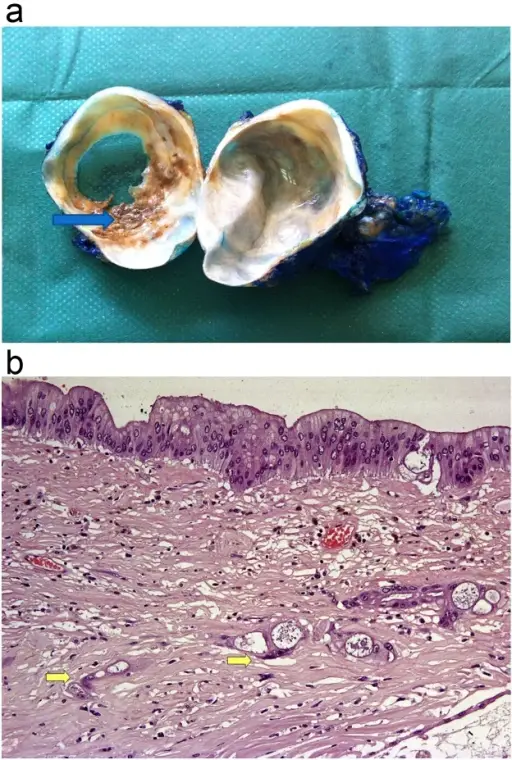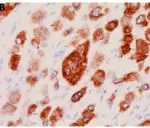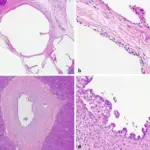Mucinous cystic neoplasms are a type of cystic neoplasms that usually arise in the body or tail of the pancreas and present as painless, slow-growing masses.
What is the Pathology of Mucinous Cystic Neoplasms?
The pathology of mucinous cystic neoplasms is:
-Etiology: The cause of mucinous cystic neoplasms is unclear, though believed to be associated with female hormones.
-Genes involved: None.
-Pathogenesis: The sequence of events that lead to mucinous cystic neoplasms is not clear, believed to be related to female hormones. The incidence of estrogen receptors in these neoplasms alludes to a hormonal cause.
-Morphology: The morphology associated with mucinous cystic neoplasms are slow-growing masses that arise in the body and/or tail of the pancreas.
-Histology: The histology associated with mucinous cystic neoplasms shows it’s lined with fibrin and granulation tissue. Mucinous cystic neoplasms are filled with profuse, tenacious mucin, cysts lined with columnar mucinous epithelium, an associated dense stroma like ovarian stroma.
How does Mucinous Cystic Neoplasms Present?
Patients with mucinous cystic neoplasms typically are common in females present at an age range of 40 to 60 years. The symptoms, features, and clinical findings associated with mucinous cystic neoplasms include abdominal pain, weight loss, acute pancreatitis, and abdominal masses.
How are Mucinous Cystic Neoplasms Diagnosed?
Mucinous cystic neoplasms is diagnosed through the clinical presentation, laboratory studies-CBC count, a CA 19-9, and comprehensive metabolic panel (CMP). Radiological studies include CT scan, and MRI.
How are Mucinous Cystic Neoplasms Treated?
Mucinous cystic neoplasms is treated mainly through surgical resection splenectomy.
What is the Prognosis of Mucinous Cystic Neoplasms?
The prognosis of mucinous cystic neoplasms is fair with a 5-year survival rate of about 45 to 50%.



